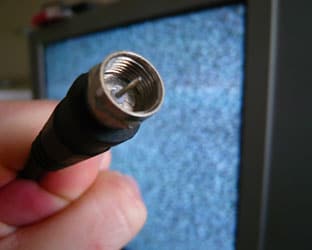There are a few things politicians can be counted on to do, regardless of party, in the defense of their constituents (and more importantly, generate positive press). One of them is to protect our children. Another is to protect the right to watch sports on television. Two senators fired off letters to FCC Chairman Julius Genachowski late last year supporting a look into the sports blackout rules, citing political reasons for bringing them to an end.
One of the, Sen. Sherrod Brown (D-OH), had a specific concern – loss of access to the airing Cincinnati Bengal’s home schedule, because the team was having trouble filling seats. Among Brown’s arguments was the fact that in many cases, fans have been subsidizing these teams by helping them build pricy new stadiums.
Brown wrote, “This holiday weekend, the Cincinnati Bengals and Cleveland Browns will play against one another in a highly anticipated rivalry game. Countless Ohioans are eagerly planning co gather with family and friends to watch this game, but will be deprived of the chance to watch the Bengals and the Browns on local television due to the FCC sports blackout rule. The FCC’s blackout policies permit broadcasters to black out home games that are not sold out within 72 hours of the game in local television markets. Due to this rule, only one home game has been televised in Cincinnati and Dayton this entire season, despite the fact that the Bengals play in a stadium that cost Ohio taxpayers over $450 million.”
Brown continued, “While I understand that the blackout rule was designed to help sell tickets, I believe that this rule should be reexamined. During these difficult times, families are struggling to make ends meet. The average cost of a ticket to an NFL game is already ten times the hourly minimum wage. As a result, attending any NFL game is simply cost prohibitive for many Ohioans. This problem will likely become worse as ticket costs increase.”
One of the, Sen. Richard Blumenthal (D-CT), had more general concerns – in a 12/7/11 letter he wrote, “Sports are an.integral part of our country’s history. Sporting events are among the most highly watched programming in America, allowing Americans to celebrate teamwork, perseverance, and triumph over adversity. Sports are also a large part of our economy, generating enormous revenues from sales of tickets, merchandise, and programming licenses.”
Blumenthal added, “For all the positive benefits that sports provide, it is therefore unfortunate that some fans are unable to watch their teams compete. Blackouts are unfair to fans. Indeed, blackouts are highly anti-consumer, whether they are the result of a league policy or an agreement-or lack of agreement-between networks and content owners. This behavior is especially unacceptable because fans pay high prices to watch sports, whether in the form of ticket prices, premium sports programming, or taxpayer subsidies for new stadiums.”
Blumenthal concluded that it was past time to have a serious discussion about ending the blackout practice.
As is his general practice when corresponding with legislators, Genachowski thanked them for their interest, reminded them that the FCC had initiated a proceeding on the matter at hand and otherwise said nothing of any substance.
RBR-TVBR observation: We are not experts on running a sports franchise, but it seems to us that the days are long gone when somebody would pass up a chance to go to a game in person because it’s being televised. And if that’s the case, why pass up on the cash that is generated by the broadcast? You’d think that ending blackouts would be good for all parties. However, if blackouts come to an end, it should be for all distribution platforms – with local broadcast TV at the front of the line.




